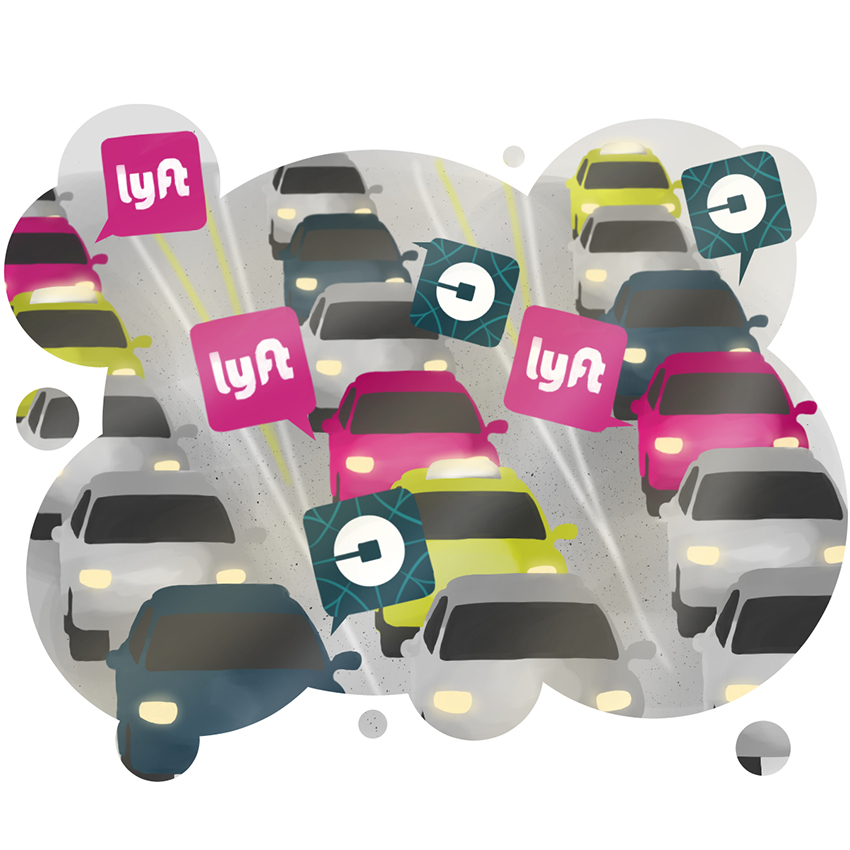Following President Donald Trump’s Muslim ban, NYC taxi workers halted rides in protest, as the majority of them are immigrants. Uber responded by lifting surge prices in order to generate more revenue. In response, Lyft pledged to donate $1 million to the American Civil Liberties Union, although this act’s true aim wasn’t based in politics, but in economics — they were targeting Uber’s customers. But regardless of whether either company is for or against Trump’s policies, the way they treat their workers and handle customer safety matters far more.
Uber’s response garnered severe backlash on social media with #DeleteUber trending and Lyft rising to the top of the app store. Social media users saw Uber’s response as neglectful of the social impact of the ban and Lyft’s as empathetic. However, this social response is misguided, as both companies should be facing backlash not for their politics, but for their business tactics. In a time where companies can either alienate or embrace their clientele with their public political actions, it’s necessary to remember that a company’s business practices matter more than feigned acts of politics.
Neither company classifies their workers as employees, denying them the full benefits that come with that designation. Instead, their workers are classified as “private contractors,” something that saves Uber and Lyft billions of dollars. Employers can save up to 30 percent on employee costs by hiring private contractors because the government doesn’t require them to pay for a number of employee specific benefits including health insurance and worker’s compensation.
Keeping this classification is one of the reasons Uber and Lyft both leave cities where fingerprinting laws exist. Nearly every taxi, bus and limousine driver in the U.S. complies with fingerprint background checks. They ensure an added level of safety in the hiring process. Yet, the companies fear that fingerprinting drivers could strengthen the argument that Uber and Lyft’s workers are employees and should be classified as such.
The denial of full benefits to these drivers must be addressed, but denying the public the added safety of full background checks is a larger and more impactful issue. With multiple reports of Uber and Lyft drivers assaulting passengers, fingerprinting all drivers is vital and should be the driving force behind the hashtag.
People should be boycotting both companies for their harmful policies, rather than for political stances they take to boost revenue. There’s no difference between either company’s actions. They both were motivated by the opportunity of earning more money, no matter that one was more politically favorable than the other.
The city of Austin and UT students should be glad that both companies are out of the city, rather than mourning their departure. In their absence, we’re not left stranded, but instead blessed with multiple new startups that fingerprint drivers to keep passengers safe. The anger behind #DeleteUber is misinformed, fixating on headlines instead of business practices. These protests should continue, but also with a #DeleteLyft campaign, until both companies classify their workers as employees and improve passenger safety, and not until both comply with popular politics.
Berdanier is a philosophy junior from Boulder, Colorado. She is a senior columnist. Follow her on Twitter @eberdanier.





















